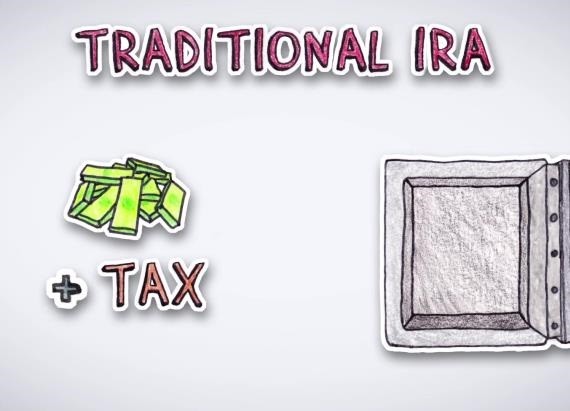401(K) Is Not Enough 4 Alternatives to Your Retirement Planning Your Finances Simplified
Post on: 29 Март, 2015 No Comment

401(k) Is Not Enough: 4 Alternatives to Your Retirement Planning
December 14, 2011 / Dominique Brown / Investing / 0 comments
Nowadays, it’s disconcerting to realize how employee retirement plans just don’t seem to be enough to cover one’s retirement. The economy is facing some challenges and some volatility, and it seems that a good employee, no matter how loyal they are to a company, can still find himself his retirement funds lacking when the retirement age comes.
A study conducted by Retirement USA found that Americans from ages 32 to 64 are going to face a staggering retirement savings shortfall of $6.6 trillion. Aside from that, 87% of businesses during a survey acknowledged that the 401(k) they are providing for their workers would not give retirement security.
In the same light, according to Forbes.com, employers privately revealed that their 401(k) plans were not sufficient to provide for worker’s retirement. Basing on these facts, it seems that even the most hardworking employee cannot rely on its company’s pension. And since most of us are at the receiving end, we need to find alternatives to protect ourselves from a bleak future of relying on either our children or social services. The best way to get a good retirement is not to be complacent with a 401(k) and start looking for alternatives that will beef up your retirement savings.
Alternatives to the 401(k) Plan
- Roth IRA – Ideally it would be best to max out both your 401(k) and your Roth IRA. After all, the more you can save for your retirement, the better it is for you. However, for many people this may not be possible. So the question now is, where should you contribute first? The answer lies in investing in your 401(k) plan first, right up to the amount where your employer will match. Once the maximum match has been achieved, switch your contributions to the Roth IRA.
There are four reasons why the Roth IRA might be a good place to contribute next as compared to a 401(k) account. The first reason is in the fees. Most company-sponsored 401(k) accounts often offer sub par mutual funds that feature high fees, while your Roth IRA account allows you to select a low-fee ETF or mutual fund.
Immediately, you can see your savings right there. Second, 401(k) plans usually offer only a single choice in a given asset class. It is said that diversification or asset allocation is largely responsible for the growth of your investments, and a Roth IRA can allow you to do just that with over thousands of investment options to choose from.
Third, although 401(k) plans will allow you to deduct your investment from your taxable income on the current year, you will eventually have to pay taxes on the amount withdrawn in the future. On the contrary, after tax funds will be paid now, but in the future earnings are tax free.

The rationale behind this is that taxes are sure to be higher in the coming years so the Roth will still allow for more savings. And finally, if ever you come across a time of need, the Roth IRA will not charge you any penalty for early withdrawal while a 401(k) will have a 10% penalty.
- Non-Deductible IRA – Although most advisers suggest that the Roth IRA is a much better option than the non-deductible IRA, there are some instances wherein you cannot qualify for a Roth while still qualifying for a non-deductible IRA. A non-deductible IRA, also known as a Traditional IRA consists of non-deductible contributions. This means that if you are covered by a retirement plan or a 401(k) at work, and your modified adjusted gross income exceeds the income limit, contributions cannot be deducted to a Traditional IRA. Investments that are suited for a Traditional IRA include bond funds and REIT. Also, it is possible to convert a non-deductible IRA to a Roth IRA.
- Taxable Accounts – If you still have some money left over after you’ve maxed out both your 401(k) and your Roth IRA, you can continue to contribute for your retirement through a taxable account. These accounts include savings, certificates of deposits, mutual funds and other investment accounts. A drawback to this however, is that you will owe taxes for every year your account earns on capital gains or from profit by selling the investment.
However, there are also some advantages. First, there is no limit to the amount you can add to your taxable investment account. Also, there is no limit to what kind of investment you make, and there are no required withdrawals. Another advantage is that taxes on most stock dividends or long-term capital gains on investments that you’ve owned for more than a year are usually taxed less than the regular tax rate. Another point to consider is that there may be lesser fees and charges when you buy and sell investments in a taxable account than in other retirement savings plans.
- Keep Contributing to a 401(k) Then Roll Over – If you have no plans to stay with your employer for long, you can consider rolling over your 401(k) or 403(b) plan even if the cost is high and there is no match. Once you leave your employer, you can rollover the balance of your retirement account to your own IRA. Eventually the better investment options and lower fees provided in an IRA will offset the high cost of rolling over your 401(k) plan. However you do have to consider how many years you have left to pay off the high cost.
Each type of retirement plan has its own advantages and disadvantages. The key is in understanding just how much you will be needing upon retirement and figuring out your own investment strategy that will be enough to cover for your retirement and more.
Whatever your plan may be, the one advice that always rings true when it comes to retirement saving is to save early. This will allow you to max out your 401(k) and your Roth IRA while still leaving room and time to start investing in other arenas that will offer passive income and the chance to take advantage of the power of compounded interest.
Reader Thoughts! How would you save for the future if your employer didnt offer investment options?














